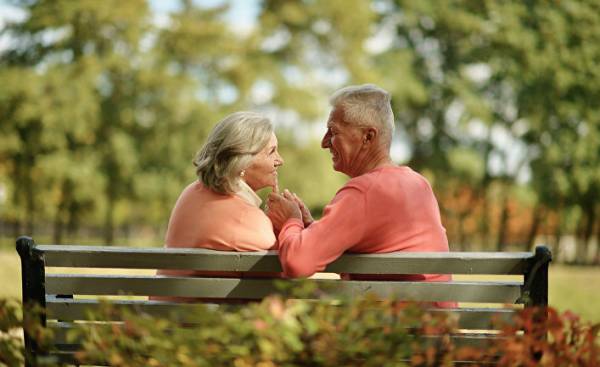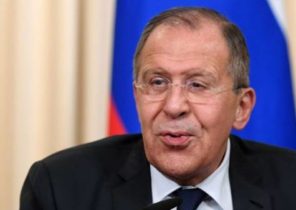
In 2012 I went on a journey through England. After having walked across the country, I wanted to collect stories about love — and found them in the road, in pubs, in fields, in villages and in cities. I told stories to the people I met on the way, and they told me their own, and in our conversations again and again we stopped to re-understand the meaning of the word “love.”
With time, I began to write these stories, exciting and strong, and to put them in the audio collection in the Internet, making them available to anyone who’d listen. But that cold morning in April of 2012, when I came out of his house with a backpack on my shoulders, I had no idea where my this work — and what stories about love can have to how society changes.
Four years and 1,500 miles later, my project has a name — A Human Love Story. I went through all England, visited Europe and not only. I talked to people in many different places: at the Opera house and in prison, on a forest trail and a noisy festival, in villages and in cities. I collected hundreds of love stories, and my audio collection was attended by more than 25 thousand people in 50 countries from all continents.
From this exchange of stories, I made a strong belief that telling each other our stories of love and sharing the most intimate, we can change for the better and the world around, and ourselves. But how is this going? And in these stories so important?
In my travels, I realized that stories about love — it’s always the stories about those moments when we felt a deep and strong connection with other people, with some place or with a part of themselves. Love stories — stories of those moments, no matter they last one second or a lifetime. In fact, the history of love — this is the main history of life because they are born from situations when we feel truly alive when we are in “the flowering of your humanity”, using the expression of the writer and activist Audrey Lorde.
Stories about love have over us such strength, not only because they “catch” these moments of awakening to life — but also because they show us the tragedy of those situations where connection to the world and other interrupted: the lack of dialogue, lack of understanding, lack of empathy. The love stories collide very different, often opposite emotions: joy, sadness, pain of loss, the sense of home, happiness and suffering.
In stories about love, these feelings come to the surface, because there we allow ourselves to be vulnerable, open to other people, unarmed to themselves and their environment. Barriers are breaking down, ripped off the mask and we are at one with the world and with other people.
During my first journey through the South downs, on top of a hill to beacon hill, I met an old man. We started talking and he told me that every day he went with his dog on the same road as the memory of walks with his wife, who died the year before. These walks became for him the only way to feel her presence; they were an epitaph to a bygone love. Standing on the hill, he told me about the power of this simple attempt to reconnect with the past, he felt his wife next to him is invisible to him, she melded with the fields, the sky and the barking of their dogs and their love continued to live in this uncomplicated everyday life.
Another time when I was walking along the canal Bank in Birmingham, a woman of about forty stopped me and asked where I go and what I do. We walked together and she told me her love story. Trying not to burst into tears, she talked about how hard it was to accept the fact that her son is not a child and an adult and independent person. He went with friends, and she longed for him. Her story was a story about the ability to let go of someone you love.
In 2013 I was able to join the project theatre, London Opera, attracted to participate in theatrical productions in prison. I spent a few hours with a group of eight prisoners, and we talked about what it means to your love ones. For them it was a fleeting sense of belonging to the world: open the door, a hand on the shoulder or just a nod in their direction.
One of the inmates pointed a finger at his buddy and said that “his love story — he’s the one”, but not in the romantic sense, but because the man was kind to him and accepted him as he is. Before concluding our meeting, I asked them to write me remember their names. Everyone, without exception, first wrote his prison number: a loss of identity and isolation — the exact opposite of love.
Another topic that I constantly faced in your journey is the lack of self-love people I have ever met, failure treated with understanding and kindness. One woman who allowed me to sleep over, told me he can’t look at yourself in the mirror and not want to hang your photos in the house. Her own mother, for years, asked her about the photo, but she could not transcend themselves. She considered herself pretty enough.
Love stories often have their origin in hospitality, to open your home and heart to a stranger, in a simple humanity. In his autobiography, “letter to a hostage” of the French writer Antoine de Saint-exupéry writes about the miraculous power of a smile, on its ability not only to heal the wounds left by violence, but even to erase all memory of it — as if it never existed at all. And while I wandered, the willingness of people to offer me if not stay and dine, then at least a kind word, gives me hope.
And still: why sharing our stories of love, we can change the society?
First, in order to tell their story to strangers takes courage: the courage to be unarmed. Becoming vulnerable, we make ourselves available for a look other people, and it can be very painful, as if we unmask. And at the same time, taking such a step, we give ourselves the opportunity to be heard and to get answers to their questions. Through compassion and empathy we can begin to build the foundations of a new society.
Second, by sharing experiences, we not only share our humanity we create the opportunity for new love stories. For example, the woman from Birmingham who didn’t want to look at your reflection, unable to find the courage to take a picture and give the picture to his mother — so small but such an important change!
All these small changes set the basis for more substantial change, and this is my main point: any form of human communication can be a communication of love and for love. Wherever we see injustice, fear and separation, we can consciously make the spark of love, through compassion and openness to each other.
The ability to openly share feelings, to listen and hear gives us the opportunity to communicate with the people we previously did not know or did not understand. The unfamiliar becomes less strange and alien — less alien. We see in the refugee mother, the felon’s daughter. In stories about love there’s no “I”, there is only “you” or “we”.
Which leads us this way? As the silence, coming after noise, or like the circles that go on water from the thrown stone, the echo of the love stories we tell each other permeates every corner of our life and heals wounds. These stories are just a way of convergence, the first steps towards a more conscious and solidary society.
But in the end, we can’t stop. We need to move on to action — living in the moment and reacting to what we see and experience. We need to create a new story, not from words — and from the presence where we’re needed. Activism must begin with ourselves. We must do all we can to create love and not just talk about it.







